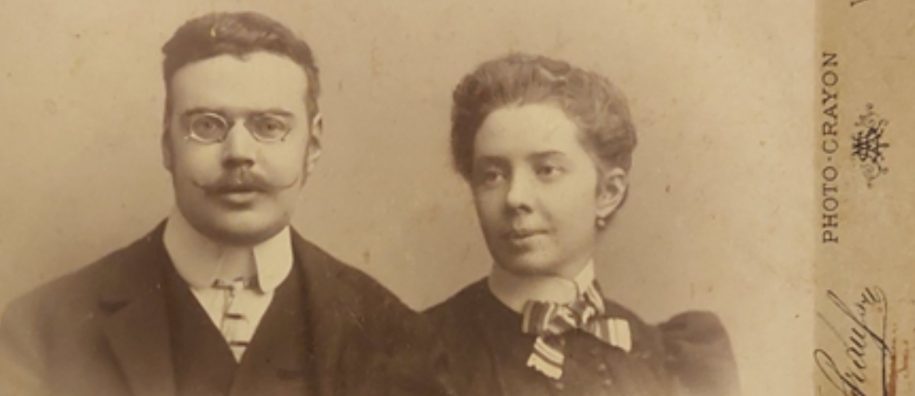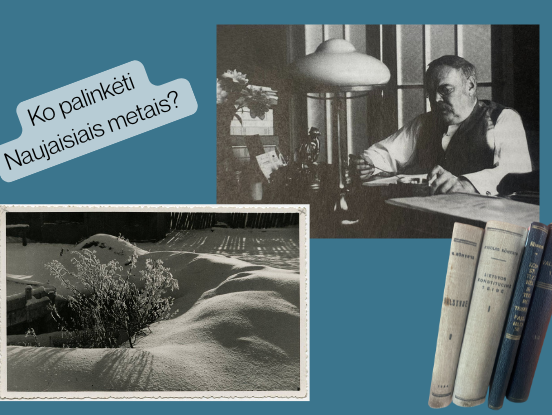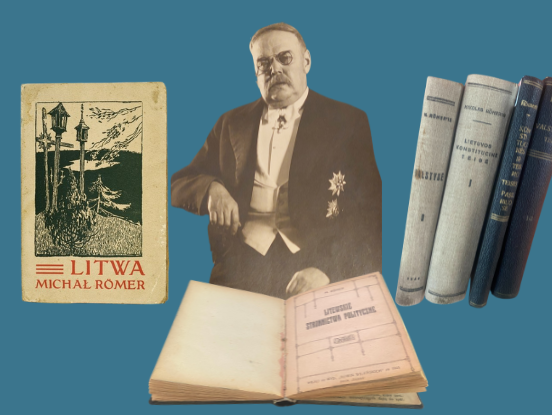
Mykolas Römeris was born on May 17, 1880, in Bagdoniškis, Rokiškis district of northern Lithuania, in the family of noblemen Michał Kazimierz Römer and Konstancja Tukałło. The old noble Römer family came to Lithuania from Saxony via Courland in the 17th century. The German noble “von”, still attached to the surname at the beginning of the 20th century, witnessed their nobility.
According to the family tradition, M. Römer was prepared and schooled for political and social activities. As a young child, he was sent to the Imperial Law School in Petersburg, a place specially devised for the children of nobility. He graduated there in 1901, but left for the West, unwilling to serve in the Tsar's institutions. He arrived in Paris in 1902 and entered the prestigious École Libre des Sciences Politiques. While studying in Paris, Römer's worldview took a decisive turn. Here, Lithuanian and Polish speaking students from Lithuania were brought together by Juozas Petrulis. At first, M. Römer refused to join the Lithuanian society because he felt he was Polish. However, Petrulis managed to convince him that Lithuania encompassed many different people and groups. M. Römer became an active member of the Lithuanian Students' Society “Lithuania” in 1904.
- Römer came back to Vilnius and founded a political movement, which came to be known as “Krajovtsy”, in 1905. It was an attempt to unite all the peoples (Lithuanians, Poles, Belarusians, Jews) in the region to create a modern democratic Lithuania. M. Römer and his associates spread their ideas through the daily newspaper “Gazeta Wileńska”. However, soon he was accused of rebellion against the Russian Empire and had to flee by hiding in the bottom of a carriage. Later, in Krakow, he met Juozapas Herbačiauskas, who had a large archive of Lithuanian periodicals. This archive enabled M. Römer to prepare “Litwa” (1908), a fundamental book on the Lithuanian national movement.
In 1915, M. Römer joined the Polish legions organized by Józef Pilsudski, hoping that by fighting for Poland, he would also contribute to the freedom of Lithuania. As he was respected by both Lithuanians and Poles, Pilsudski offered him the opportunity to become the head of the pro-Polish government in Lithuania in 1919. M. Römer refused, seeing that Lithuanian interests would not be respected in such a country.
After receiving an invitation to work as a Kaunas district judge, M. Römer returned to Lithuania in 1920. Here, he had to build up the state court system, which was just beginning to exist. M. Römer became one of the most prominent public figures and most respected authorities in independent Lithuania. He was a judge of the Supreme Tribunal, a member of the Council of State, a professor of law at the University of Lithuania (later Vytautas Magnus University), and finally, for seven years, the rector of the University. Especially in the field of law, M. Römer made a great contribution to making Lithuania a European state, based on the principles of justice and respect for human beings. He developed the judiciary, created the Lithuanian science of constitutional law, introduced the principles of constitutionalism into Lithuanian law, and educated generations of lawyers to establish European legal norms.
When Lithuania regained the city of Vilnius in 1939, M. Römer moved there with the Faculty of Law. Unfortunately, he was forced to teach Soviet constitutional law to students and soon came under the disfavor of the Communist Party because of his attitude towards the USSR Constitution. He was put on the NKVD lists, but was not repressed. He spent 1944 in his hometown of Bagdoniškis. Afterwards, he returned to a devastated Vilnius, but lived only for a short time, dying on February 22, 1945. He was buried in Vilnius at Rasos Cemetery.

